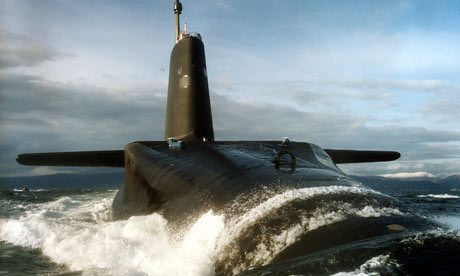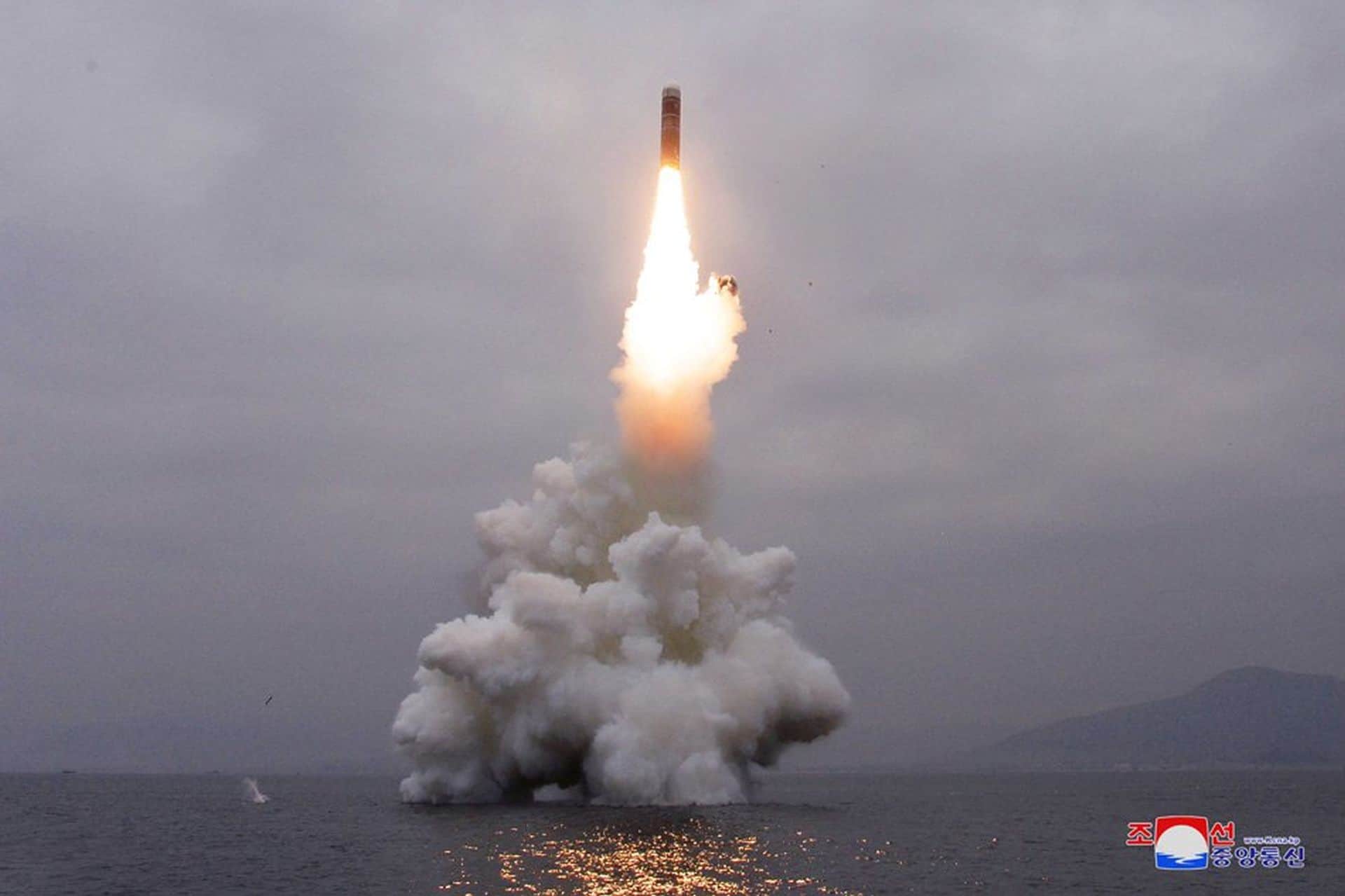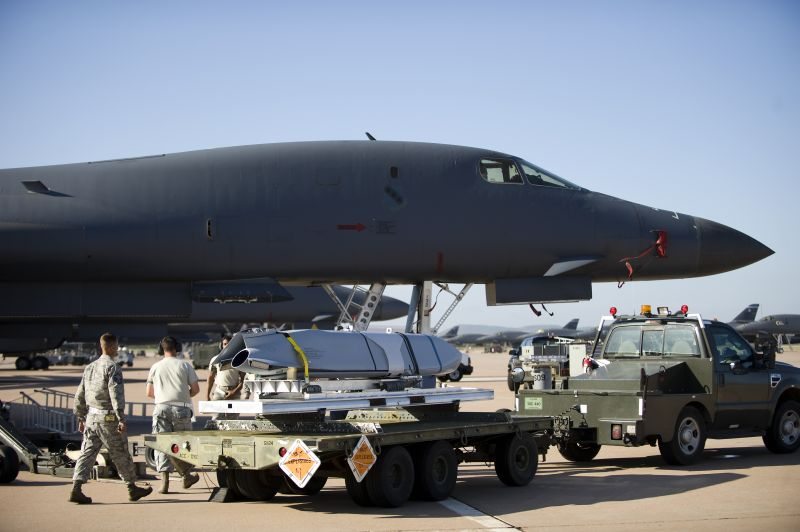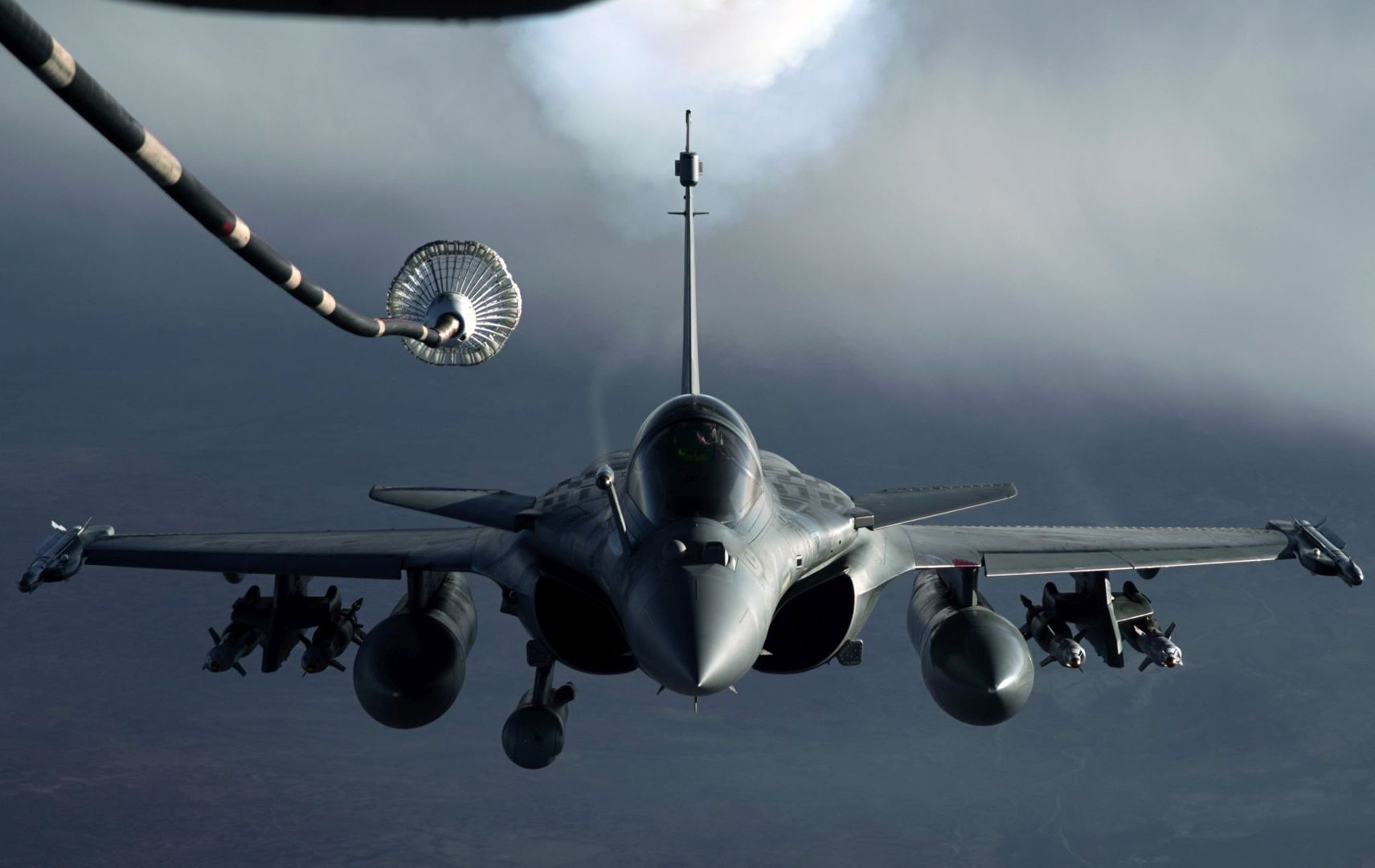A review of Britain’s nuclear defences has concluded it needs four nuclear submarines to stay safe, but alternatives could be found in the future.
The review, led by Treasury Chief Secretary Danny Alexander, said there are alternatives to the UK’s current nuclear stance which requires at least one nuclear-armed submarine always to be at a sea.
However, it accepts that cutting the size of the current four-vessel fleet would not offer the same degree of resilience as the current continuous-at-sea deterrent and would not guarantee “a prompt response in all circumstances”.
The review was launched by Prime Minister David Cameron and Deputy Prime Minister Nick Clegg as part of the coalition agreement – reflecting the Lib Dems’ opposition to a like-for-for like replacement for the Trident submarine fleet – which the Tories strongly support
Mr Cameron reiterated that the review did not change current Government policy – with the key decisions on whether to go ahead not due to be taken until 2016 after the next general election.
The review concluded: “The analysis has shown that there are alternatives to Trident that would enable the UK to be capable of inflicting significant damage such that most potential adversaries around the world would be deterred.
“It also shows that there are alternative non-continuous postures (akin to how we operate conventional military assets) that could be adopted, including by SSBNs, (nuclear missile submarines) which would aim to be at reduced readiness only when the UK assesses the threat of a no-notice pre-emptive attack to be low.
“None of these alternative systems and postures offers the same degree of resilience as the current posture of continuous at sea deterrence, nor could they guarantee a prompt response in all circumstances.”
The review effectively rules out developing a cheaper alternative to the Trident ballistic missile system – such as a cruise missile-based system – or halving the size of the submarine fleet to just two boats.
“Doing that at the same time as investing in the development of a new warhead, new missile, new platform and new infrastructure means that transitioning to any of the realistic alternative systems is now more expensive than a three or four boat successor SSBN fleet,” it said.
It acknowledged that ending the continuous-at-sea deterrence would require a sufficient level of “political confidence” that an aggressor would not launch a pre-emptive attack without notice while the UK did not have a submarine at sea.
Ministers would also need to be confident they could re-constitute back-to-back submarine patrols before a potential period of heightened tensions arises and then maintain them for long enough to cover any emergent crisis.
Mr Clegg welcomed the report as the most thorough review of the UK’s nuclear deterrent ever published.
“It clearly shows that there are options for our country that do not simply involve us sticking to the same strategic positions that were taken in the Cold War,” he said
“I hope that today marks the beginning of a fact-based debate about Trident that will see us discussing what kind of deterrent is right for Britain in the 21st century, rather than just sticking to decisions that were made for another time.”
However, Downing Street made clear that Mr Cameron remained committed to the continuous-at-sea deterrent.
“The Prime Minister believes in continuous at-sea deterrence. It is as simple as that,” Mr Cameron’s official spokesman said. “He has seen no evidence that there are credible alternatives.”
Speaking at the Royal United Services Institute military think-tank, Mr Alexander said that reducing the submarine fleet to three boats and ending the continuous deterrent would be a major step towards international nuclear disarmament while cutting the estimated £20 to £25 billion cost of the programme by £4 billion.
“Trident is the last, unreformed bastion of Cold War thinking. Britain in the 21st century, almost a quarter of a century after the fall of the Berlin Wall, needs to think about nuclear deterrence and disarmament in a fresh way,” he said.
“We have a big decision to make in 2016, and this study shows that there are credible alternatives that don’t compromise our security but do allow us to move on from the Cold War.
“We can adapt our nuclear deterrence to the threats in the 21st century by ending 24-hour patrols when we don’t need them, and buying fewer submarines. That way we can take a big step down the ladder of disarmament and keep our country safe.”
However, Conservative Defence Secretary Philip Hammond poured scorn on the LIb Dems’ “part-time deterrent”, warning that the cost savings of reducing the size of the submarine fleet would be far lower than was being claimed.
“We have had for 45 years now a continuous-at-sea deterrent posture which has served this country very well and we do not believe that with nuclear threats, if anything, proliferating, with more countries seeking to get nuclear weapons, this is the time to downgrade, certainly not to go to a part-time deterrent,” he told the BBC Radio 4 Today programme.
“We can have continuous-at-sea nuclear deterrence or we can have a part-time deterrent. The part-time deterrent will save us only trivial sums of money, about £50-60 million a year in net present value terms over the life of the system.
“In the context of the overall defence budget that’s about 0.17%, that’s a tiny saving for a huge gamble with Britain’s security.”










